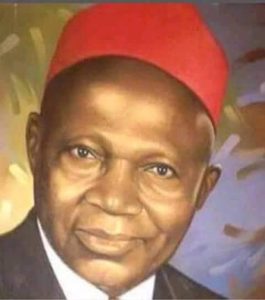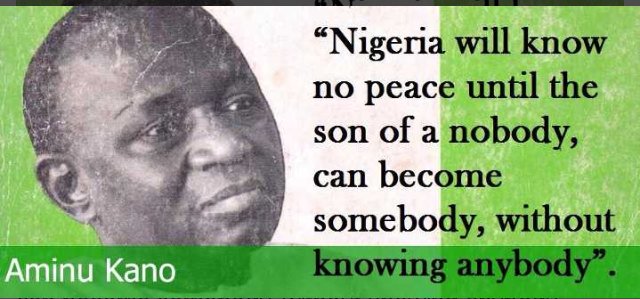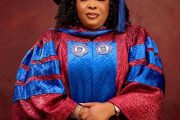There is widespread fear that Mallam Aminu Kano, sage of the ‘radical tradition in the North’ must be turning in his grave that the idea of ‘who is his father?’ as a criterion for leadership recruitment in Northern Nigerian politics might have been smuggled back or about to be. If that happens, it would squarely undermine everything achieved from his paradigm of politics and the redemption it brought about. It would be coming back to politics simply because, contrary to expectations, two elderly politicians – Muhammadu Buhari and Atiku Abubakar – have been unable to sit down away from hustlers, aides and pocket intellectuals of power to behave as statesmen that they should be. Once in court, all tools appear to be open to deployment, including the president and his party – the All Progressives Congress, (APC) making the claim that Atiku is not a Nigerian.


The late Mallam Aminu Kano
However the courts sort that out, that will be the judicial dimension. Politically, the dimension will be a completely different one for the democratic space in the region. It is very interesting that Dr Junaidu Mohammed who flew the kite in a magazine interview by saying that nobody knows Atiku’s father is a senior ideologue of the NEPU-PRP tradition. And he did that a full month before the APC submission in court was made, (see page 24 of March 11th, 2019 edition of Tell). The North’s quiet over Dr. Jenaidu’s reference to Atiku Abubakar as such could mean anything from purposive silence/complicity or silent indignation, none of which forebodes popular desires. Only time will tell.
In several quarters, there is something ominous in the silence, especially that even cadres of ‘the radical tradition in the North’ have observed it. The argument is this: Would banditry or Boko Haram be everywhere in the North today if the North, not to talk of Nigeria, showed sufficient national indignation when the insurgents reared its head in 2006 before becoming a full blown insurgency in 2009? The answer is No. In the 1980s, there was a complete unity of the Nigerian elite in favour of crushing Maitatsine. It has, not surprisingly, taken many years for the resurgence of militancy of Jihadist nature since then, notwithstanding the abundance of what the defunct New Nigerian once called ‘little Ayatollahs’. Under Abacha. no such existed entirely.
The question then is why hasn’t that lesson informed the reaction of the North and of Nigeria to Dr. Junaidu, at least from cadres of ‘the radical tradition in the North’ for whom the statement must have been such an ideologically scandalous one? Could it be because it was directed at Atiku? But, who knows against whom it might be directed tomorrow? At a time original and simulated evidence are suggesting that those we are uncritically calling bandits now are enacting deep-seated grudge against the society, the silence on the part of the diffuse circle members of the radical heritage is troubling to quite some observers because it supports the idea that someone must be the son (or daughter) of somebody in the North to become something. Protest against this was and is the core of the NEPU-PRP continuum which is the organisational expression of the ‘the radical tradition in the North’ .

Dr. Junaidu Mohammd: reflexivity or ideological somersault towards the evening?
This, it is argued, is well known to the ebullient Dr. Junaidu and hence the questions being poured on him such as, at what point did he then discover he should be the bearer of this message, several centuries after the English, French, American and Russian revolutions have interrogated feudalism by dealing a fatal blow on the devine right of kings’? Is it that significant whether people know Atiku’s father or not when he was not seeking to be the Lamidon Adamawa but to be president of Nigeria, an office which did not consider the social status of his father important enough as to even mention it? How does this task fall on a Soviet trained medical doctor to perform? Why did it become necessary to talk about Atiku’s father after the elections and to disclose information, (what former heads of state told him many years ago, assuming they did) that nobody asked for? Is it everything we know that we disclose in the media? One other point stressed in this interrogation of Dr Mohammed is: the world has seen people who would have wished to have been born in a palace just as the world has also seen people who were born in one palace or the other exchanging that for completely different consciousness and praxis. After all, no one had the privilege of deciding his father or mother and parentage can thus not be a vital issue in a republic.
Like every other human being, Atiku Abubakar cannot be without his own high and low points. As a politician, he cannot but be a man of many words. His economic thinking or his articulation of them were not only unclear but also crude. He relied so much on models and did not appear to appreciate the deeper implications of some of the things he carelessly identified with. He simply didn’t have the benefit of insights from even the neoliberalism he was hanging on. It is possible that rather than re-assuring, he alarmed a vast number of potential voters and might have complicated his electoral standing.
But that can only be cited as a case of whether he can perform and does not provide an excuse for an over-drive into what people see as character assassination. Here again, the volley of questions come up for Dr. Junaidu Mohammed. A PRP ideologue in 1978-1983 asked: where did the word ‘progressive’ in NEPU or ‘redemption’ in the PRP come from if Dr. Junaidu is standing by the assertion? Was it not the denial of opportunities to children whose father the North didn’t know, to quote him, that these words interrogated? In the standard lexicon, the children of the Talakawa, who were not those opportuned to be recruited into the elite segment of the military, police, civil service and the professions? It is thus an understatement that a senior ideologue would so brutally turn the PRP ideology upside down by centralising Atiku Abubakar’s parental bearing in presidential leadership recruitment. It is even more so that a full month after the statement, no group or prominent individuals in this very discerning North, including cadres of the PRP consciousness has distanced itself from the statement and/or the maker.

Known more as the arch conservative, even the ‘radicals’ who came after him have not done as well as he, particularly in building institutions, inclusiveness, empowerment and beautifully managing his relationship with Mallam Aminu Kano even as they slugged it out politically
From the works that Aminu Kano devoted his life to, Nigeria is now where children from orphanages can rise to become president of the country. Dr. Goodluck Jonathan did not emerge from an orphanage but he captured popular imagination before he collapsed under the weight of his lack of preparation for high office. Elsewhere, that has also been the story represented in one form or the other by the Abraham Lincolns, Obamas, Michael Jacksons, Bill Gates, Zuckerberg, Steve Jebb. Nobody says now he or she would not use Apple products or Bill Gates philanthropic gestures until s/he knows the father. So, asked the critical gentlemen, where is this backwardness coming from when, in a way, President Muhammadu Buhari can claim to be a continuation of the work Aminu Kano started? While Aminu Kano’s ideological imagination of Nigeria forced open the democratic space for the children of the Talakawa to become whatever in Nigeria, many of them are some of the most corrupt today. Making war against corruption a cardinal commitment, warts and all, therefore, entitles Buhari to claim a space in the Aminu Kano political homestead. But, wouldn’t this neo-feudalism canvassed for him not cancel that out?
With people saying the North would have gone farther than what it is today if it had followed the path prescribed by Mallam Aminu Kano rather than the alternative options, the trend in Atiku-Buhari tussle might produce judicial victory but not social victory. That should be an issue of concern because, at a time when no game changer is on the horizon because politics or power is largely merely for power sake, a zero-sum game between those who are powerful is what no one would want. Why? Because, in most of such tests of strengths, the difference between victory and defeat are rarely distinguishable.




























